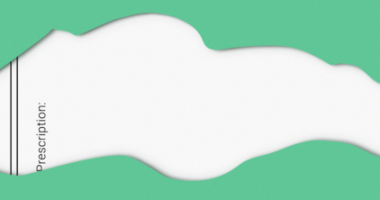What are the Influence of Caffeine and Creatine on Cognitive and Physical Performance in Resistance-Trained Athletes?
In a recent study featured in Nutrients, researchers explored the individual and combined effects of caffeine and creatine nitrate on cognitive and exercise performance among resistance-trained athletes. Both caffeine and creatine are known dietary supplements that can enhance training and exercise outcomes. Caffeine acts by improving strength, muscular endurance, and anaerobic performance through its interaction with adenosine receptors, specifically the A2A subtype. It also reduces pain perception and enhances neuronal excitability. On the other hand, creatine functions by replenishing adenosine triphosphate (ATP) during anaerobic exercise, thereby increasing short-term power output and training volume.
The study conducted by researchers at Jacksonville State University involved a double-blinded, randomized, crossover, placebo-controlled trial. Participants were 18–40-year-old individuals with at least 2.0 years of experience in multi-joint resistance exercise, without a history of metabolic diseases or certain health conditions. The study excluded individuals based on specific criteria such as body mass index, smoking habits, alcohol consumption, and allergies to stimulants like caffeine.
During the study, participants were provided with high-dose caffeine, creatine nitrate, or a combination of both for seven days. Various assessments were conducted including standardized resistance exercises, a Wingate anaerobic power test, cognitive performance evaluations, cardiovascular responses monitoring, and safety examinations through blood samples.
The results indicated that the combination of creatine nitrate and caffeine notably improved cognitive function, particularly in cognitive interference tests. However, the impact on short-term exercise performance was limited. The study highlighted the complex interaction between caffeine and creatine supplements and emphasized the need for further research to fully understand their effects on exercise outcomes.
In conclusion, the study confirmed that consuming creatine nitrate and caffeine together can enhance cognition in resistance-trained athletes without adverse effects over a short period. However, these supplements did not show significant improvements in exercise performance. The findings underscored the importance of continued research to explore the long-term influences of these supplements on cognitive and athletic performance across diverse populations. Future studies should also consider factors like muscle growth, hormonal responses, neuromuscular efficiency, and gender differences to provide a comprehensive understanding of their effects.
What are the potential benefits of taking caffeine and creatine together?
Taking caffeine and creatine together can offer several potential benefits for individuals, especially athletes and fitness enthusiasts. Some of the advantages include:
- Increased Power and Strength: Creatine helps boost energy levels by increasing phosphocreatine in muscles, leading to greater explosive power and strength during workouts.
- Enhanced Muscle Mass: Both caffeine and creatine are linked to greater strength gains and muscle mass, aiding in lifting more weight and promoting muscle hypertrophy.
- Improved Alertness and Energy: Caffeine acts as a stimulant, enhancing alertness by blocking adenosine receptors in the brain, providing an extra sense of energy to support workouts.
- Proven Ergogenic Benefits: Numerous studies support the effectiveness of both creatine and caffeine as safe and efficient performance enhancers.
While combining caffeine and creatine can have positive effects on athletic performance, it’s essential to be aware of potential drawbacks such as digestive discomfort and dehydration risks. It is recommended to consider the timing of consumption to maximize the benefits of each supplement without compromising their effects.
How do caffeine and creatine affect cognitive performance in athletes?
Caffeine and creatine can have significant effects on cognitive performance in athletes. Here are some key points from the research:
- Caffeine: Caffeine has been shown to enhance cognitive functions such as attention, vigilance, reaction time, and mood. Studies indicate that caffeine can improve specific aspects of cognitive performance, particularly in tasks requiring attention and alertness. Lower doses of caffeine have been associated with improved cognitive processes related to alertness and mood.
- Creatine: Creatine supplementation has demonstrated benefits in cognitive performance following exhaustive exercise. It has been linked to improvements in cognitive function, particularly in tasks involving executive functions. Creatine monohydrate supplementation has shown potential in attenuating cognitive decline associated with strenuous physical activity.
- Combined Effects: When creatine nitrate and caffeine are taken together, they may amplify cognitive benefits, especially in tasks involving cognitive interference. Co-supplementation of creatine nitrate and caffeine has been found to significantly enhance cognitive function without affecting short-term exercise performance. The combination of these supplements may lead to synergistic effects on cognitive processing, potentially increasing activation in the prefrontal cortex critical for executive functions.
In conclusion, the combination of caffeine and creatine can offer notable advantages for cognitive performance in athletes, highlighting the potential synergistic effects of these supplements on mental focus and cognitive function.
Potential risks or side effects of taking caffeine and creatine together
When taking caffeine and creatine together, there are both benefits and potential risks to consider:
Pros:
- Mixing creatine with coffee can improve exercise performance compared to creatine alone.
- Coffee provides fluids necessary for proper digestion of creatine.
- Creatine dissolves well in hot liquids like coffee.
- The combination can simplify your pre-workout supplementation regimen.
- Drinking sweetened coffee can help replenish muscle glycogen.
Cons:
- The caffeine content in coffee may reduce the performance benefits of creatine during a loading phase.
- Coffee with high-fat creamer before a workout may slow the absorption of caffeine and creatine.
- Coffee can have a diuretic effect, especially if not consumed regularly.
- Caffeine and creatine together may contribute to dehydration and digestive discomfort in some individuals.
It’s important to note that while there are potential downsides to mixing creatine with caffeine, both compounds are generally regarded as safe and effective for sports performance. It’s recommended to stay hydrated, limit caffeine intake, avoid consuming caffeine close to bedtime, and listen to your body’s response when combining these supplements. Consulting a healthcare professional before making changes to your supplement routine is advisable.
ALSO READ: Why covid patients who could most benefit from paxlovid still aren’t getting it









